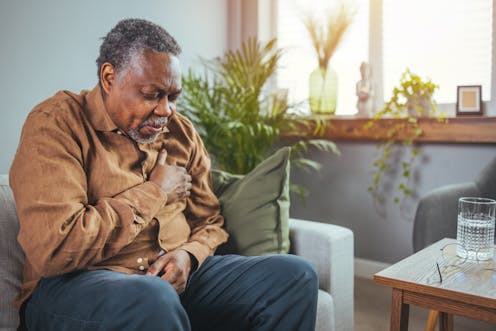Many migrants wait hours after a heart attack to seek help. Here's what needs to change
- Written by Hannah Wechkunanukul, Associate Professor in Public Health, Torrens University Australia

Your chest tightens, like an elephant is sitting on it. Pain streaks down your arm and you break out in a cold sweat. You feel light-headed and you’re pretty sure you’re having a heart attack. So when do you call an ambulance?
You might think the answer is easy: straight away, right? It’s well known getting the right medical help early when you’re having a heart attack can be a life or death decision.
For many people from CALD (culturally and linguistically diverse) communities, however, the answer might be: hours and hours after the first symptoms strike. Our research has shown many migrants don’t seek help straight away.
Why do so many migrants wait so long to seek help or go to hospital after chest pains? And what can we do about it?
What we know so far
Our previous research[1], based on a study involving more than 600 patients who presented at a hospital with chest pain, looked at how long they delayed seeking medical help and how long they delayed going to hospital.

















